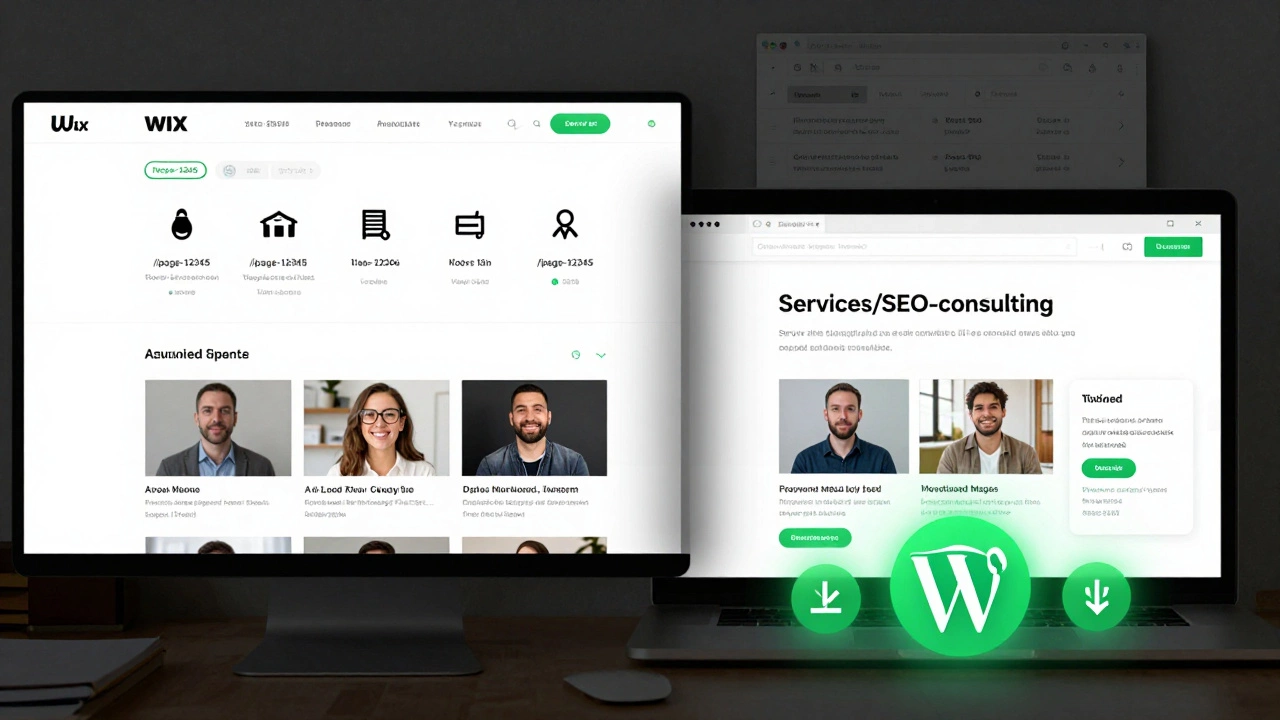Search engine optimisation isn’t just for marketers – it’s a core part of building a site that users actually find. Whether you’re coding from scratch or using a builder, the choices you make today will shape how Google sees your pages tomorrow.
Every line of HTML, every script tag, and even the way you name your folders can help or hurt rankings. Google’s crawlers read the same source code you write, so clean markup, fast load times, and clear URLs give them a leg up. It’s not about stuffing keywords; it’s about making your site easy to understand for both users and bots.
Take JavaScript, for example. When you rely heavily on client‑side rendering, Google may miss content that never makes it to the initial HTML. Using server‑side rendering or static pre‑rendering ensures important text shows up early, keeping your pages indexable and fast.
1. Keep URLs short and descriptive. A good URL tells a visitor what the page is about and gives Google a keyword hint. Avoid long strings of numbers or vague “page‑id” parameters. Instead, use words like /seo-tips or /webflow-vs-squarespace.
2. Mind your keyword density. More isn’t better. Aim for natural usage – one or two mentions of your main term in a 500‑word article feels right. Over‑optimising looks spammy and can trigger penalties.
3. Leverage built‑in SEO tools. Platforms like Webflow, Wix, and Squarespace include meta‑title fields, alt‑text boxes, and sitemap generators. Fill them out, don’t leave them blank. Even a simple alt tag like “SEO guide for developers” adds value.
4. Optimise page speed. Large JavaScript bundles, uncompressed images, and unused CSS slow you down. Use lazy loading for images, minify files, and serve assets from a CDN. Faster pages keep bounce rates low and earn a ranking boost.
5. Add structured data. A few JSON‑LD blocks can turn a plain article into a rich result with star ratings or FAQs. It’s a small code snippet that can dramatically increase click‑through rates.
Finally, remember that SEO is a marathon, not a sprint. Test changes, monitor performance in Google Search Console, and adjust as search algorithms evolve. By treating SEO as part of your development workflow, you build sites that not only look great but also get found.

Wix is easier to use, but WordPress gives you real control over SEO. Learn why WordPress wins for rankings, speed, and long-term growth in 2026.
Read More
Explore how website builders impact SEO, compare Wix, Squarespace, Shopify, and Webflow, and learn practical steps to keep builder sites search‑engine friendly.
Read More
Do web devs need SEO? Yes-at least the technical parts. Here’s exactly what to own, how to build it into your workflow, and checklists to ship search‑ready code.
Read More
Webflow and Squarespace are both popular website builders, but which one truly delivers stronger SEO for your site in 2025? Find out all the relevant details here.
Read More
Wix says it's SEO-friendly, but is it truly optimized for search engines? Find out what works, what doesn't, and how to boost your Wix website's SEO.
Read More
JavaScript can both help and hurt your site's SEO, depending on how you use it. This article breaks down how search engines crawl and index JavaScript-heavy pages, with practical tips to avoid common headaches. We'll dig into the ways JavaScript can improve SEO and when it throws speed bumps in your way. Find out which SEO-friendly patterns work for modern frameworks. Get clear, real-world advice for building JavaScript sites that search engines actually understand.
Read More
What makes a URL good for SEO, and why does it still matter? This article slices through the hype and gets into the real ways URL structure can make or break your site's search visibility. Find out which types work best, which ones mess things up, and get battle-tested tips from day-to-day web projects. Perfect for web developers who want straight talk without the jargon.
Read More
Struggling to figure out how many keywords you should use for solid SEO? This article breaks down the sweet spot for keyword usage, explains why cramming too many is bad, and offers strategies that actually boost your search rankings. Get the facts on keyword density and modern user behavior. Developers can expect concrete tips tailored for today’s web, not recycled advice from years ago. Keep your tech and content in sync with advice that works.
Read More
Webflow offers an intuitive platform for web developers looking to streamline their design process. While it stands out for its user-friendly interface, developers often question how it fits into their SEO strategies. This article explores Webflow's features, its impact on SEO, practical tips for optimizing Webflow sites, and reasons why some developers might hesitate to adopt it. By understanding these factors, developers can make informed decisions about whether Webflow suits their projects.
Read More
Understanding SEO in website builders is key for web developers aiming to enhance site visibility. This article breaks down basic SEO concepts, offers practical tips, and explores tools available in popular website builders. It's about optimizing your website efficiently using built-in SEO features, while highlighting the impact of SEO on your website’s performance. Learn how to make the most of what your website builder offers to improve search rankings.
Read More
In the digital age, the synergy between coding and SEO is vital for successful web development. Developers need to understand how coding practices affect search engine rankings. This article explores essential coding techniques that enhance SEO, offering insights into how web developers can optimize their sites effectively. Learn about the integral role of coding in creating SEO-friendly websites and how to leverage these skills.
Read More
Delving into web development, it's crucial to understand when search engine optimization might not be the right approach. Though SEO is often seen as a gateway to visibility, certain scenarios make it less favorable. This article examines instances where SEO can actually be detrimental rather than advantageous. It uncovers alternative strategies that can serve web developers better under specific circumstances, exploring the dynamic balance between optimization and user-centric design.
Read More